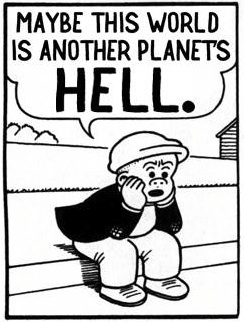WASHINGTON — There’s something that makes the current Supreme Court different from some of its recent predecessors. The justices seem more open about their faith, appearing before devout audiences and talking more about how religion shaped their lives or guides them now. As the court this week weighs religious conviction vs. legal obligation in the latest challenge to the Affordable Care Act, those who study the court say the change is hard to quantify but easy to notice. Chief Justice John Roberts and Justice Samuel Alito are devout Catholics who faced questions during their confirmations about how their faith would affect their jurisprudence. Justice Clarence Thomas is a former seminarian who says God saved his life. Justice Antonin Scalia is the most outspoken. He has urged fellow intellectuals to be “fools for Christ” and used an interview last fall to underscore his belief in the existence of the devil, whose latest maneuver “is getting people not to believe in him or in God.”…. Much attention has been given to the religious makeup of the current edition of the Roberts court. With six Catholics and three Jews, it is the first without a Protestant member. But in what is likely to be the signature case of the term, the issue is not affiliation but devotion.
 I’ve always admired the Founding Fathers for their commitment to making sure American governance was a secular undertaking. Most of them were committed Christians, the noticeable exception being avowed atheist Thomas Jefferson. Whatever their personal theology, the Founders understood the admixture of government and religion to be a recipe for disaster. They lived in a world where men were defined by their beliefs, where the question generally wasn’t IF you believed in God, but how strong your faith and commitment was. And they were wise enough to understand that while such definitions might work in the private realm, in government they might well become a recipe for repression and discrimination.
I’ve always admired the Founding Fathers for their commitment to making sure American governance was a secular undertaking. Most of them were committed Christians, the noticeable exception being avowed atheist Thomas Jefferson. Whatever their personal theology, the Founders understood the admixture of government and religion to be a recipe for disaster. They lived in a world where men were defined by their beliefs, where the question generally wasn’t IF you believed in God, but how strong your faith and commitment was. And they were wise enough to understand that while such definitions might work in the private realm, in government they might well become a recipe for repression and discrimination.
America these days appears as if it’s under assault by those who not only believe in God, but believe that Biblical law should be the one and only source of legal authority. The role of the Supreme Court has always been to function as the ultimate dispassionate arbiter, to decide matters of law based solely on the law without allowing theological conflicts to muddy the waters. Of course, that would be in a perfect world, and as well all know, we inhabit a world far removed from perfection.
The question today is how much- or if- the religious affiliations of the current Supreme Court influence their collective legal decisions. Can this court impartially rule on cases involving parsing the role and place of religious faith in public life? Or are we headed down the road that may eventually lead to theocracy? The future of birth control, health care, and welfare hang in the balance…and there’s every chance we may not recognize our country on the other side. If employers are allowed to object to…well, virtually anything on the basis of religious belief, can chaos and rampant self-interest be far behind?
The rise of religious conservatives on the court corresponds with the rise of the religious right in Republican politics. Seven of the 11 justices who joined the court since 1980 were nominated by Republican presidents, including the five Catholic men who are the current court’s most consistent conservatives.
But they were not chosen for their religious affiliations, experts agree. “It didn’t matter that Alito was Catholic,” said Eric Mazur, a professor of religious studies at Virginia Wesleyan College. “What mattered was his ideology.”
 Religious affiliation may not have mattered so much when each justice was nominated (Thankfully, there’s still no officially acknowledged religious litmus test for public service)…but is it about to matter now? Have we entered an era when justices will no longer leave their religious beliefs at the courtroom door and issue rulings based solely on the law? This question is especially pertinent when the legal issues pending are rooted in faith…or at least faith as interpreted by people in positions of power and influence.
Religious affiliation may not have mattered so much when each justice was nominated (Thankfully, there’s still no officially acknowledged religious litmus test for public service)…but is it about to matter now? Have we entered an era when justices will no longer leave their religious beliefs at the courtroom door and issue rulings based solely on the law? This question is especially pertinent when the legal issues pending are rooted in faith…or at least faith as interpreted by people in positions of power and influence.
The Religious Freedom Restoration Act of 1993 was intended to prevent legislation that substantially burdens a person’s free exercise of their religious faith. The question of what constitutes a “substantial burden” is being tested, along with the question of whether alleviating a “burden” means an employer can use their faith in a way that impacts and burdens those they employ.
I don’t know the answers to the questions I’m posing. I only know that I’m concerned about the potential for religious faith to become yet another tool with which the rich and powerful 1% can exercise control over the lives of the 99%. Are we approaching a point where oligarchy and theocracy will essentially become one and the same? Will the modern day equivalent of robber barons acquire ever greater amounts of power and money at the expense of the unwashed masses? Are we well down the path heading towards the creation of a two-tier society, where the many are held to exist for the edification and comfort of the few?
What frightens me most are the possibilities and the unanswered questions…because what happens at the Supreme Court may well fundamentally alter everything about our government and the power of the wealthy and influential.
